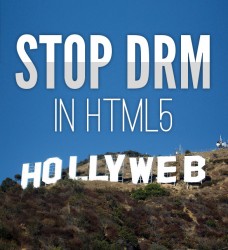Weekly News Roundup (19 January 2014)
Welcome back. In this edition of the WNR, we talk about everything from Ellen, to the Dreamcast, and THE VERY FATE OF THE WEB ITSELF. Hope this issue is as interesting to read for you as it was to write for me.
Starting in 3, 2, 1 …
![]()
A screener copy of the Ben Stiller movie The Secret Life of Walter Mitty that has been leaked onto file sharing network apparently carries a watermark that identifies the original owner as talk show host Ellen DeGeneres. The show’s producers have vowed to track down whomever is responsible, possibly a staffer, intern or even a janitor who is also a BitTorrent fanatic. They also maintain they may not be the source of the leak, which seems unlikely based on the evidence so far.
It’s not surprising that screeners get leaked. In fact, it’s more surprising when screeners don’t end up on file sharing networks. It is a bit rare for the owner of the screener to be identified as a celebrity though.
So does this point to the secret life of Ellen DeGeneres as a notorious BitTorrent pirate? Probably not. Or if she is, then she’s not a very good at covering her tracks!
——
It’s not quite letting the fox guard the hen house, but it isn’t that much better either. The MPAA, Hollywood’s lobby group, is now a member of the W3C, the organisation responsible for setting web standards. This comes after the W3C approved steps to add DRM to the HTML5 standards, a move that keeps the web relevant in the age of video streaming, but at the expense of open source goodness and interoperability.
The members that make up the MPAA have not hidden their slight disdain towards the openness of the web, and they would love it if it was locked down, closed down and made all proprietary, so that things like piracy can be better controlled. The W3C’s poor decision last year on EMEs already means that Hollywood can slap DRM into every HTML5 web video they can get their hands on, and do it in a proprietary way that means these videos may simply not work in open source browsers like Firefox. The fracturing of the web as we know it may be a possible consequence, but will Hollywood really cares if the web breaks down? They’ll probably be too busy celebrating.
Just how much influence the MPAA will have within the W3C is debatable, so while it’s not quite letting the fox guard the hen house, it’s still kind of like letting the fox’s lobby group having a say in how the hen house is constructed and protected. Which doesn’t sound like the best idea ever.
It’s not been the best week ever for the Internet as a whole, and arguably the biggest blow of the week came when The U.S. Court of Appeals for the District of Columbia effectively killed off Net Neutrality by siding with Verizon and gutting the FCC’s attempt to regulate for an open Internet.
Short gist of it is that ISPs can now force companies like Netflix and YouTube to pay them in order to ensure the smooth delivery of traffic to end users, due to the heavy load these sites place on their network. If they refuse to pay, ISPs can now degrade connection speeds to these services, possibly to the point of making these services unusable. And if said ISPs have their own competing video streaming offerings, then that may just lend them an extra reason to be extra harsh on the likes of Netflix and Amazon.
The court’s argument is that market forces would prevent ISPs from shooting themselves in the foot like this, not when consumers can go and find another ISP that hasn’t throttled Netflix/YouTube services. Of course, this depends on users actually having a choice in the first place, many do not, and for these choices to actually differ in their self-foot-shooting policies (I mean it’s not likely that big businesses with a common interest would collude or anything like that, right?).
Are the major ISPs short-sighted enough to actually engage in this kind of anti-competitive behavior, even if they now seem to have the power and permission to do so? I almost kind of wish they would in a “go ahead, make my day” kind of way, and force Google to expand their Google Fiber rollout and become a truly nationwide ISP. Netflix too. Let’s see how Verizon will like that.
![]()
When developers talk about next-gen gaming these days, it’s all about the Xbox One and PS4. The Wii U is not so much forgotten, as it is ignored. And a developer who helped to make one of the earliest third-party Wii U games explains why third-party developers are abandoning the Wii U, and it’s not just because of its low sales numbers.
I’ll leave you to read my summary of the problems with developing for the Wii U in this article, and if you have time, you should also read the full article here. Suffice to say, Nintendo went out to design a console that was small, quiet and not power hungry, and unfortunately, they succeeded. I say unfortunately because these weren’t the things gamers were looking for, and the market segment that Nintendo wanted to sell to, moms who “wouldn’t mind having it in the living room”, seems to be a very limited segment. And that’s before the difficulty developers found with developing for the Wii U, and the difficulty Nintendo found moving from a SD to HD gaming environment, and also in developing their own Live/PSN alternative.
Nintendo just didn’t have the experience to do it right the first time, but even if they did get it right, it was still just playing catch-up. Maybe the Wii U will give Nintendo the experience, to allow them to make the mistakes they have to make, to allow them to do it right for their next console. It’s a difficult learning curve for Nintendo, but an unavoidable one. Whether they can afford to have a relative “failure” like the Wii U, remains to be seen.
Note that I wrote most of this stuff about the Wii U before the December NPD results were released. The Xbox One outsold the PS4 in December, in the US at least, although we already know that worldwide the PS4 is ahead. Supply constraints were an issue, particularly for the PS4, so take these numbers with a grain of salt. The Xbox One was the best selling non-portable console for the month.
From what little information Nintendo released about the Wii U, we know that December was the Wii U’s best month, thanks largely to the new Mario game. Leaked numbers put the Wii U sales figure at 481,000, which sounds reasonable (considering the Xbox 360 only managed 643,000 and the PS3 only 299,000). However, the Xbox One sold 908,000, so comparing next-gen to next-gen, the Wii U is still far far behind.
Plus, looking at historical trends, the Wii U is actually doing less well at this stage of its life cycle than the GameCube. In fact, it’s trending fairly similarly to the ill-fated Sega Dreamcast (although the DC’s demise had to do with other factors, not just poor sales, so no need to panic … yet).
I’m still waiting on a few other figures to trickle in before discussion the Wii U’s fate, plus the PS4/XB1 comparison, in more detail in the next WNR.
So until then, I bid adieu. Have a great week and see you again in seven days.



